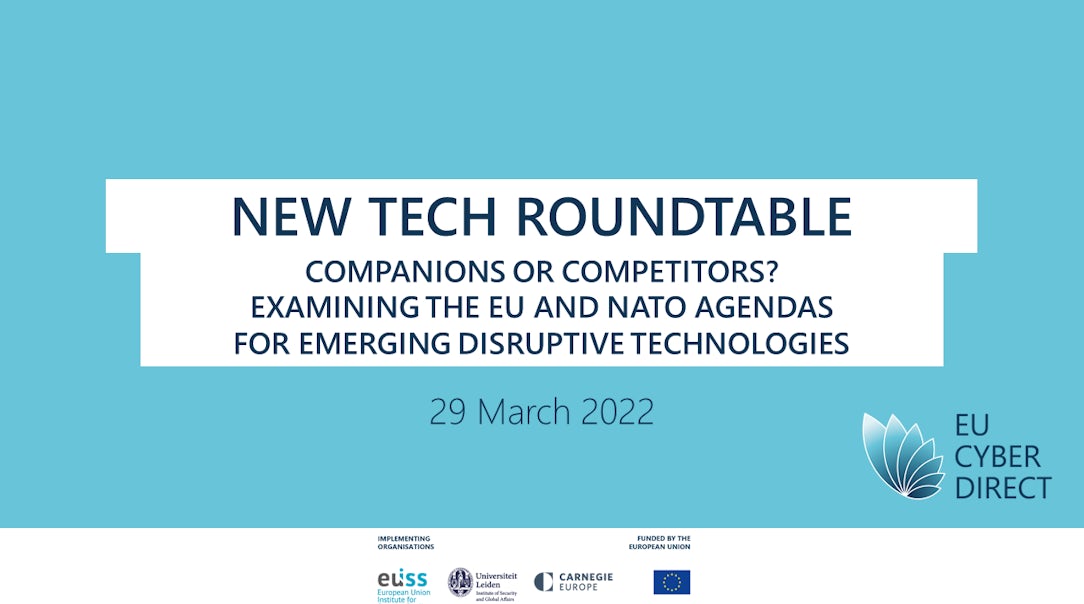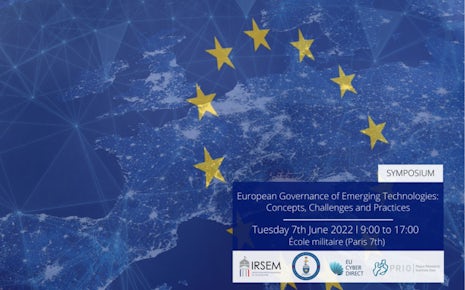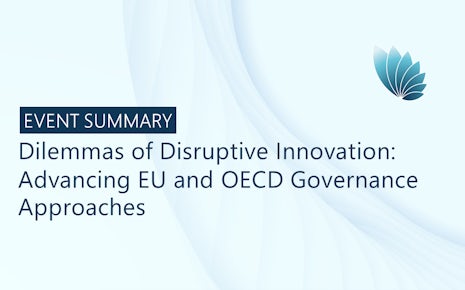On 29 March 2022, Carnegie Europe organised the first EU Cyber Direct New Tech Roundtable. This meeting was the first instalment of a series, which aims at advancing research around the EU’s cooperation with relevant partners on key issues at the intersection of emerging technologies, cybersecurity, defence, and norms. The roundtable brought together a select group of 24 scholars, experts, and policymakers. They met in Brussels to profit from an in-person discussion setting, to deep-dive into emerging disruptive technologies (EDTs) and EU-NATO cooperation, and to workshop concepts, ideas, and recommendations.
After an introduction by Raluca Csernatoni and Patryk Pawlak, the first session with the title ‘Disruption ahead? Understanding the state of play and agendas for EDTs in the EU and NATO’ took place. This session, moderated by Raluca Csernatoni, focused on recent EU and NATO policy debates and initiatives in high-tech sectors. Topics that were explored included expectation gaps between Member State/Allies’ governments and the EU and NATO, the challenge of duplication in defence innovation initiatives, as well as the anticipated increase in defence spending due to the war in Ukraine. Expert remarks were given by Simona Soare, who is a research fellow with a focus on defence and military analysis at the International Institute for Strategic Studies.
The second session, entitled ‘What room for EU-NATO synergies? The effective and responsible governance of EDTs’, zoomed in on the research, development, and governance of EDTs, from Artificial Intelligence systems to quantum-enabled technologies. Since these and other EDTs present both risks and opportunities when it comes to civil-military relations, the dual-use nature of technological innovation, and their deployment in cyber-physical domains, the roundtable explored the window of opportunity for EU-NATO cooperation and partnerships with key strategic allies. The session was chaired by Camino Kavanagh, a nonresident scholar at the Carnegie Endowment for International Peace, and featured expert remarks by Andrea García Rodríguez, lead digital policy analyst at the European Policy Centre, and Moritz Zimmermann, staff officer with the Innovation Unit, Emerging Security Challenges Division at NATO. The closing remarks were delivered by Antonio Missiroli, who is a senior policy fellow with the Institute of Security and Global Affairs at Leiden University.
Key takeaways from the discussion can be found in the event summary.



